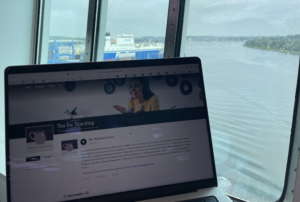
Just three emails to improve student grades and retention? Yes, please!
Sitting on the ferry back to Sweden, I listened to one of my favorite podcasts, “tea for teaching“. The episode was on the role of faculty engagement, specifically showing students that…
